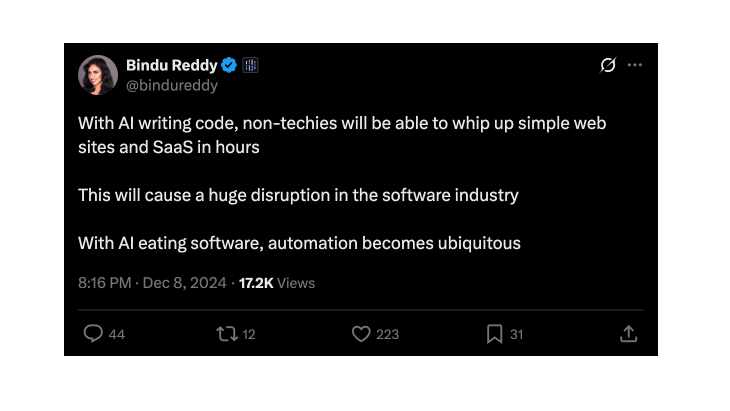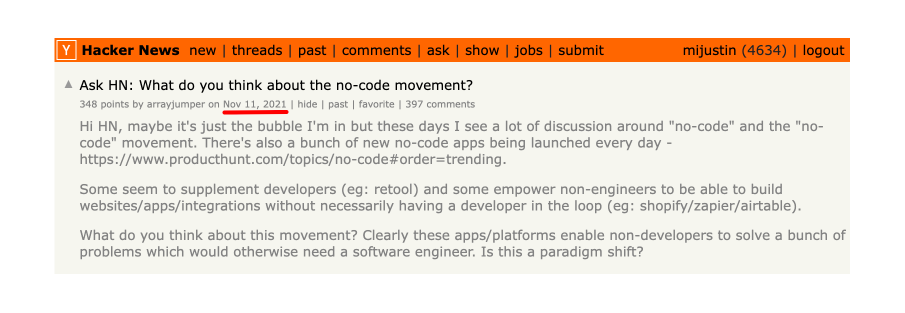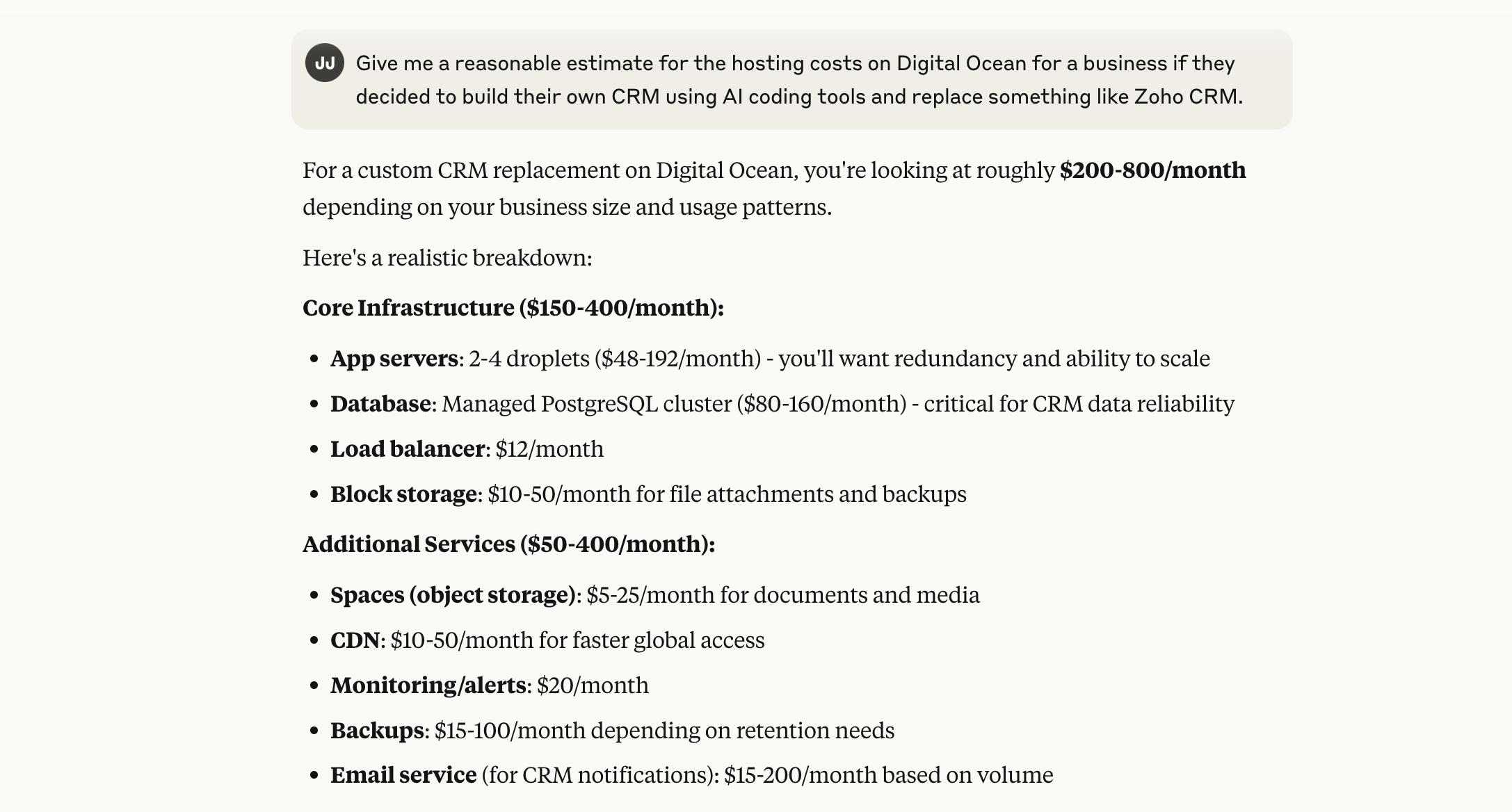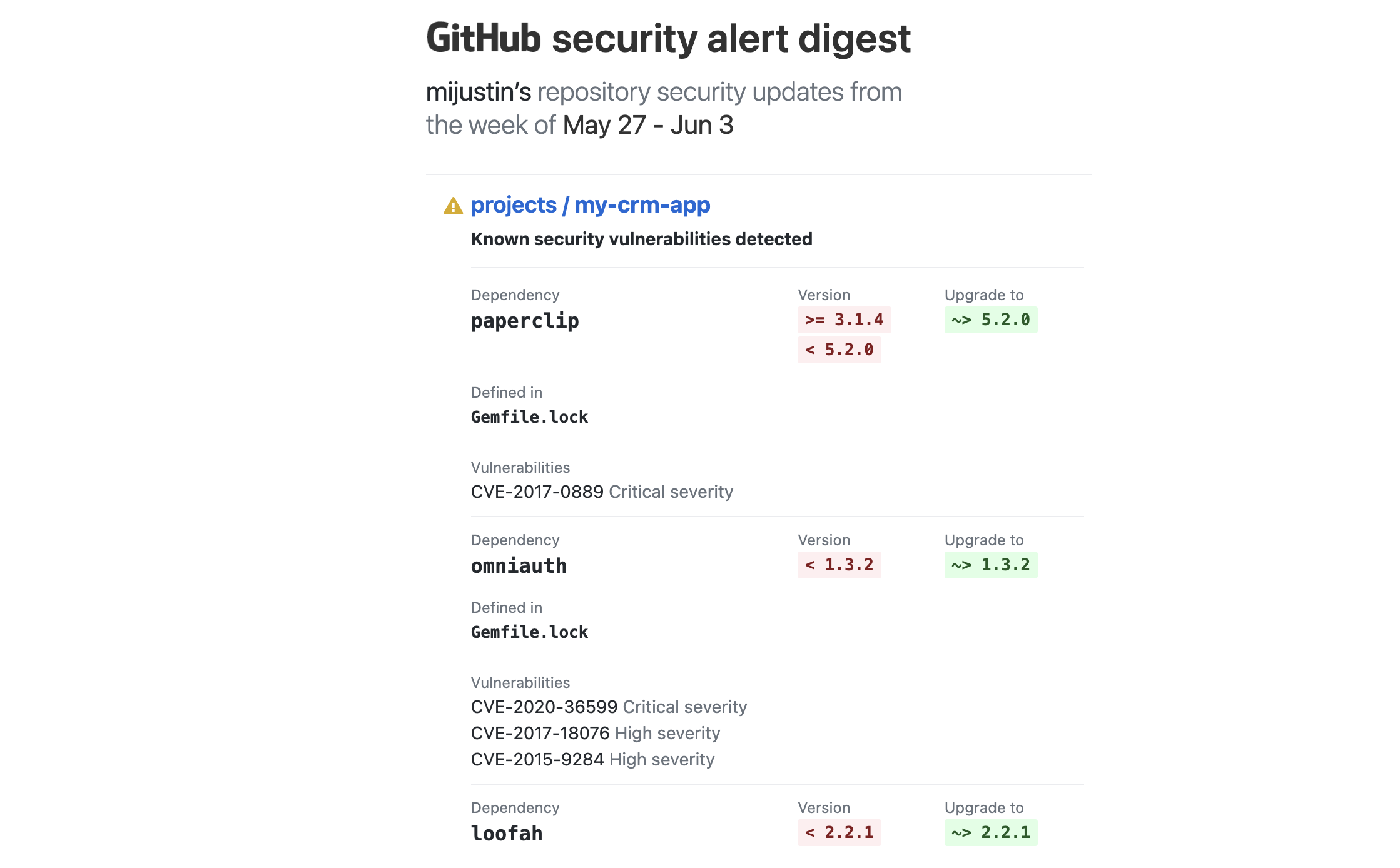No, AI Won't Turn Everyone Into App Developers
AI coding tools like Cursor and Claude Code have completely consumed the tech industry's attention. Many believe that we're hurtling towards a future where normal people build their own software, obviating the entire SaaS market.
To me, this feels remarkably similar to the predictions made during the "no code" movement. Just look at this post on Hacker News from 2021: "These platforms enable non-developers to solve a bunch of problems that would otherwise require a software engineer. Is this a paradigm shift?" All the observations, fears, and hype feel similar.
AI and LLMs certainly have the power to displace jobs and disrupt the use cases for some software. Still, I don't think that "consumers/businesses coding their own apps" will substantially replace the software people are already using.
Why AI won't turn everyone into app developers
People want to use high-quality software.
When it matters, individuals and businesses will pay for well-made software that helps them get a job done. For bookkeeping, I want to use Xero or Wave; I don't want to code my own accounting software! Boilerplate AI-generated code is not going to replace the thousands of thoughtful hours that went into crafting well-made apps.
SaaS socializes the cost of hosting.
One significant benefit of SaaS is the economies of scale it provides. Provisioning, securing, maintaining, and paying for servers and cloud infrastructure is expensive, especially when doing it yourself.
Developers have known this for years, as many of us have accumulated multiple Heroku dynos, Digital Ocean droplets, and AWS buckets that continue to bill us monthly, to keep past projects in maintenance mode.
Is it worth it for a business to build and host its own CRM? Zoho CRM starts at $14/user/month. Even if the development cost is nearly free, the business will still need to pay for hosting. When I asked Claude and ChatGPT to give me hosting cost estimates, they were $200-800/month and $110 – $770/month, respectively.
And just wait until one of your unmonitored AWS buckets gets inundated by bot traffic or a DDOS attack! The beneficiaries of the AI coding boom will be metered storage companies.
SaaS socializes the cost of security and maintenance.
The irony about this current "you can code your own apps with AI" is that we've had several waves of this already.
Before the no-code wave, there was an "open source clone" wave. Browsing GitHub, you could search for open-source versions of popular software categories ("customer support", "CRM," etc), and easily clone and modify them.
You could even deploy them automatically to Heroku or Digital Ocean with the click of a button.
I've done this several times myself. I've found well-designed and built open-source software, modified it slightly, and self-hosted it.
Invariably, these projects eventually start accumulating security notices like this:
Software requires a lot of maintenance. Dependencies need to be regularly updated, both for eliminating bugs and for security reasons. If you don't stay on top of updates, you can find yourself several versions behind on key dependencies, with no upgrade path available. Or, even worse, hackers can find these vulnerabilities and use your hosting, bandwidth, etc, for nefarious purposes.
SaaS socializes the cost of customer support.
Years ago, Adii Pienar said:
"When people pay for SaaS, they're paying for the service more than the software."
When a business pays for a SaaS subscription, it gets to outsource a key cost center: IT support.
At Transistor, we provide podcast hosting for Fortune 500 companies, federal agencies, large non-profits (as well as SMBs and individual creators). One feature they all love? Our human-powered live chat and email support. Whether you're paying $19 or $2,999 per month, you can reach out to support and speak to a person. When folks run into problems (often with platforms we don't even control, like Apple, Spotify, YouTube), our team patiently helps them make progress.
Build your own app with AI, and you're in charge of customer support.
(Sure, you can get "AI to be your support agent," but you, as the 'developer,' are still ultimately responsible).
Final thoughts
AI coding assistants and agents will change how professional developers work.
But the idea that they’ll turn normies into app developers ignores some truths about software and humans.
How many people and businesses truly want to build their own software? A small percentage of enthusiasts will do this, but it won’t be mainstream.
Also, all the AI hype focuses a lot on the “building” of software, but not on the security, maintenance, and support that software requires.
Even when AI can automate these tasks, I sense that most people would prefer to simply pay for already-built software.




